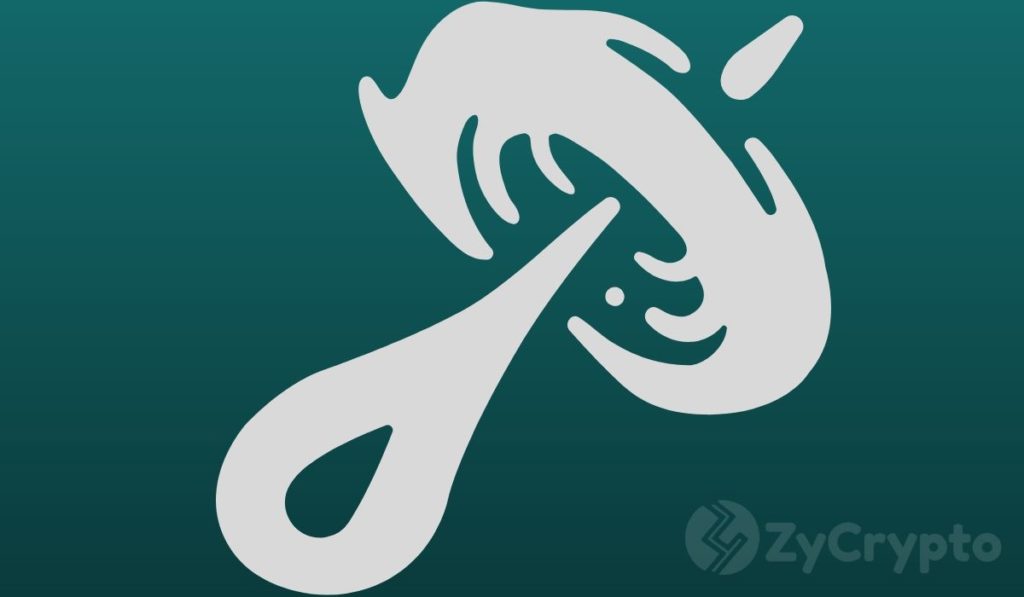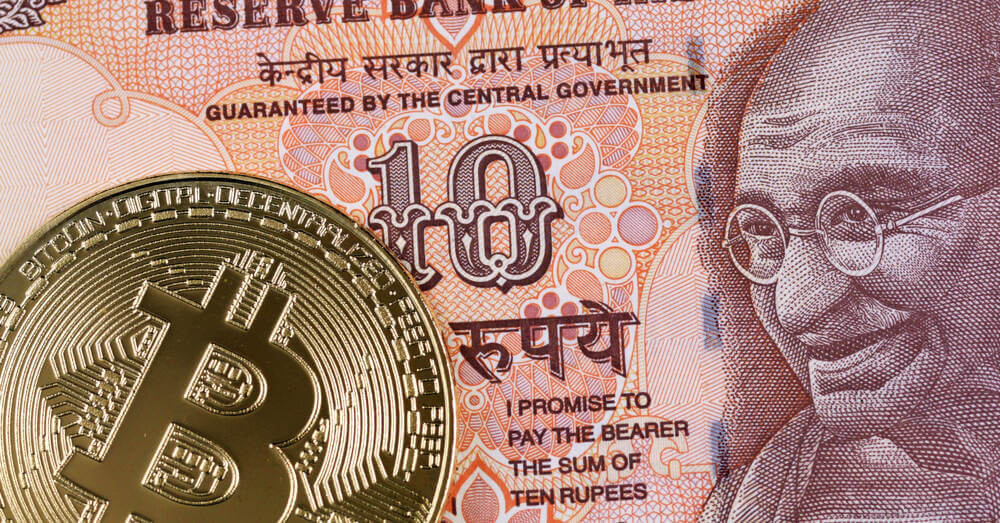2020-9-22 18:44 |
“Crypto Titans” is a series of personal interviews conducted by CoinMarketCap with prominent and forward-thinking minds tinkering on and behind the scenes of the cryptocurrency landscape. Click here to see all the Crypto Titan interviews up to today!
Jed McCaleb wears many, many hats.
Before he co-founded Stellar (of which he is the CTO), he also founded and served as CTO of Ripple until 2013. Even earlier than that — which goes back to the very origins of cryptocurrency — McCaleb founded the now infamous Mt. Gox after reading about Bitcoin online, creating the wildly successful (and then wildly unsuccessful) first Bitcoin exchange in just two weeks.
As one of the earlier crypto pioneers, McCaleb has noticed a gradual maturity in the space, as he sees both people and projects come in with higher quality ideas and better plans. And even during the middle of a pandemic, McCaleb’s philosophy about cryptocurrency has not changed even as what seems like the entire world has — it’s still about building something that people can actually use.
What was the moment when you realized that this was the industry you wanted to be in?
McCalebIt was summer of 2010. I was winding down a project I was working on and just browsing the internet. I read some Slashdot article about Bitcoin, got super excited about it. Two weeks later I had put up Mt. Gox.
Do you always go that quickly from idea to product launch?
McCalebNo. Usually when I decide that I want something, I try to move fast because I get worried that other people have the same idea, which is usually not true — but this was a quick one.
Since you’ve been in the crypto space for a relatively long time, are there any myths or misconceptions that you often run into that you can debunk for us?
McCalebI feel like often all these different projects and coins and tokens get lumped into one crypto bucket, when really they serve very different purposes and different functions.
I think that they should be viewed a little more separately than they tend to be. They just get lumped into one thing, even though they’re solving different issues and different problems.
Are you talking about Bitcoin’s use case versus a stablecoin, for example?
McCalebSure. Bitcoin is trying to solve one problem, Ethereum is trying to solve another, Stellar is trying to solve a third.
All these things are often viewed as competing things, when in fact they’re just using some kind of the same underlying technology, but the problem they are actually solving in the world is just very different. In a lot of ways they are not actually competing and I think that’s often overlooked.
Do you think that competition in general is a good thing in the crypto space? Do you see it as a very competitive environment?
McCalebI think competition in general is good. The crypto environment suffers a lot because there’s just so much hype and nonsense. One of the reasons — well, there’s a few reasons — but one of them is just that it’s hard for people that are not very technical to understand whether these things make sense or not.
It’s almost a competition of marketing rather than fundamentals, which I think makes the industry suffer a lot.
It’s just very hard for people that don’t have a really strong CS background to sift through which of these projects even has merits at all. You end up with a lot of misallocation of money and things like that. It’s almost a competition of marketing rather than fundamentals, which I think makes the industry suffer a lot.
Do you think that the current DeFi hype is an example of people getting caught up and not understanding the fundamentals of the various protocols?
McCalebThat’s a different issue. That’s a lot of naval-gazing by crypto people. This is something that is very cool if you’re into crypto, but a lot of it doesn’t make sense in the wider world.
There are some exceptions that do, but I think it is a bit overhyped — no one’s even using these things in a normal way….do we really need derivatives on them and all this other kind of stuff when they’re not even being used by people other than just to speculate on it?
I don’t want to knock all of DeFi, there are some good things there. But there is a lot of basic stuff that crypto needs to get done right before a lot of that makes sense.
What do you think are some of the ways that cryptocurrency can bridge that gap to the traditional financial world?
McCalebThis is something that basically Stellar spends all its time working on. The whole original design of Stellar is that you can have fiat currencies and other kinds of forms of value run in parallel with each other and with crypto assets. This is super important to drive this stuff mainstream.
Any kind of new technology needs an upgrade path.
This is kind of the whole reason why there’s the stablecoin hype now, is that it bridges what people traditionally do with money, with the way crypto works.
Any kind of new technology needs an upgrade path. You need an upgrade path from the old way of doing things to delivering things — otherwise, people can’t migrate.
That’s exactly what Steller was designed to do, give people a way to move fiat onto this crypto technology.
Do you think that a marriage of the traditional sector and the crypto sector is a good thing to grow the space?
McCalebIt’s a necessary thing. I don’t think there’s another route, really. There’s obviously some people that will just jump straight into holding Bitcoin. But to get mass adoption, you need a way that people can can use the currency that they’re used to using — like dollars or euros or pesos— in this crypto manner.
Has your philosophy on crypto changed at all since the start of the year when the world imploded?
McCalebI don’t think it has really changed.
It just kind of highlights one of the reasons why we’re doing this. It makes it more clear for other people. It accelerates the momentum that crypto had already.
Do you think that the pandemic has highlighted some of the benefits of cryptocurrency over fiat currencies over the past few months?
I think so. Obviously, there’s the whole inflation issue, where countries like the U.S. had to print a lot of money just to alleviate some of the pain that’s been caused by the pandemic.
I understand the reasons why they’re doing it. But for the people that are holding dollars, it obviously weakens the dollar. That highlights some of the benefits of any asset that has a fixed supply like Bitcoin or lumens or gold or anything like that. It just makes those things more valuable. There’s that aspect of it.
And then there’s also the aspect that people have needed to send money around the world, probably more than normal because of this. And any time you’re doing that, there’s a lot of friction when you are sending money across the border, and a lot of projects (particularly Stellar) focus on that.
Since you said that Stellar’s main focus is on helping more people make that bridge from fiat to crypto, do you think XLM’s price itself is important?
McCalebAt the end of the day, these networks and protocols need to provide some sort of value to people. They need to be useful to people’s lives. That’s what we spend all our time focusing on, how to make Stellar useful for people. We don’t really focus on the price or anything like that. We just want to be able to affect people’s lives in the real world. That’s what ultimately matters the most.
Maybe price is a secondary indicator of how useful the underlying protocol is in some way.
But if you do that, then that changes the demand for the underlying network. And the lumens are used in a fundamental way for the network. Maybe that affects the price, maybe price is a secondary indicator of how useful the underlying protocol is in some way. It’s obviously very noisy, because a lot of things aren’t useful that have a high price. But I think that the trend is there: that where price and utility can come into play.
It’s been interesting to watch the rise in the price of YFI, especially since the creator said that the tokens have no value from the very start.
McCalebThe whole crypto market is pretty wild, inexplicable. I mean, Dogecoin still has value.
Do you think that Dogecoin only has value because Elon Musk keeps tweeting about it?
McCalebIt’s just one of these things. It’s very hard for these things to die.
Have you ever thought about creating your own currency like that? Not anything to save the world, but a meme-based currency to see what would happen?
McCaleb(Laughs). No. I’m pretty busy.
For a more serious question, do you have a piece of advice for people that are just entering the crypto space?
McCalebТhere’s a lot of hype and a lot of stuff doesn’t actually make sense when you start scratching under the surface. The consensus mechanism doesn’t hold up, it’s not as actually decentralized as you would want, the fundamental business idea doesn’t make sense. You should do a lot of diligence and try to understand as much as you can, and what will actually work before you jump into something.
Again, I think it’ll be very hard to approach this if you don’t have a strong CS background. Be careful. There’s a lot of nonsense out there.
What do you think then is the best way for non-CS people to get into crypto?
McCalebActually, I don’t know a good route. Ask the people that are most technical that you know, and just be smart about it.
I think that’s one of the big issues, that there’s a misallocation of resources — both capital and like human capital — because it’s hard to sift through what works and what doesn’t. I’m hoping that eventually some of these things will actually start to gain traction in the real world. And then, it will be more clear to people what things actually have legs and what don’t. This is just the pain of the newness of the space still.
As time goes on, do you believe that the projects that don’t actually have a use case will start to drop out?
McCalebThat’s what I mean. I would think that that would happen, and ultimately has to happen. Hopefully, once things actually start to be used, it will be clear what makes sense and what doesn’t.
One question I got from Tim Feriss, he asks people what their favorite mistake was. Do you have a favorite mistake?
McCalebI’ve made a lot of mistakes, let’s see. I mean, I never should have sold Bitcoin…I don’t know if there’s any one thing. It’s just a sea of things in general.
Be very mindful of who you end up working with, especially as an entrepreneur or the people that you kind of partner with, since you’re stuck with them for quite a long time. They have a big impact on the trajectory of your venture.
If you wouldn’t work with someone for your lifetime, don’t work with them for a day.
My biggest mistakes have been not being not doing enough diligence of the people who I actually partner with or work with in that way. The would be the biggest take away for me.
I think there’s an expression or saying that, if you wouldn’t work with someone for your lifetime, don’t work with them for a day — and taking that to heart is important.
Talking with people in the crypto space, I’ve found that there are varying attitudes towards regulation. I’ve talked to people who think the government is trying to kill them, as well as people like Meltem Demirors who thinks regulation helps minimize pain in the space. Where do you fall?
McCalebI would just hope that to the extent that there is regulation, they just keep as light a hand as possible, because that’s really stifled a lot, the a lack of certainty.
What there really needs to be is not so much regulation, but clarity.
I think what Meltem meant is that there needs to be regulation because it takes away the uncertainty, and I agree with that. But they [regulators] can also just say, “Hey, this stuff is regulated or, hey, this stuff is like in this category” and then we’re fine.
What there really needs to be is not so much regulation, but clarity. That would go a long way to making more legitimate people get involved and just allowing people to do things that they are scared to do or were too unclear before.
Since you’ve joined the crypto community, how have you seen the space mature? Would you say it’s still a very young community?
McCalebIt’s really changed over time. It still has a bit of a Wild West feel, but not as much as in the early days.
The quality of people working here has gone way up since I was first involved. There’s much better entrepreneurs, much better people that work in the space than there was originally, and the projects themselves are just higher quality. We are definitely trending in the right direction.
I do think it still has a ways to go. I think a lot of that has to do with what I said before — there needs to be regulatory clarity, because in the early days when you would talk to banks, they are interested, but they just wouldn’t know if they would get in trouble for working with us. Clearing up that stuff would just go a long way to making it more mature.
I recently spoke to J. Christopher Giancarlo, the former CFTC commissioner also known as “Crypto Dad.” He said that the U.S. is definitely not a leader right now in crypto regulation — do you think that the U.S. has a chance to get ahead?
McCalebI don’t follow policy that closely, so it’s hard for me to say. I mean, I would be kind of surprised. The U.S. is naturally more conservative than some other places that have less taboos. The world is big, and so surely somebody is going to be more cutting edge than what the U.S. ends up being. I doubt that we will be the leader here. But maybe.
For our final question: do you have a favorite crypto meme? Most people I ask say HODL, but I would argue it isn’t really a meme.
McCalebYeah, it’s a way of life.
Do you subscribe to the HODL philosophy?
McCalebI have been sad every time I’ve sold Bitcoin, for sure.
This interview has been edited and condensed.
Enjoyed reading our Crypto Titan series? Catch our last interview with “Crypto Dad” J. Christopher Giancarlo. Or check out the full list here.
The post Stellar’s Jed McCaleb: Crypto Doesn’t Need More Regulation, It Needs Clarity appeared first on CoinMarketCap Blog.
origin »Bitcoin price in Telegram @btc_price_every_hour
Emerald Crypto (EMD) на Currencies.ru
|
|





















